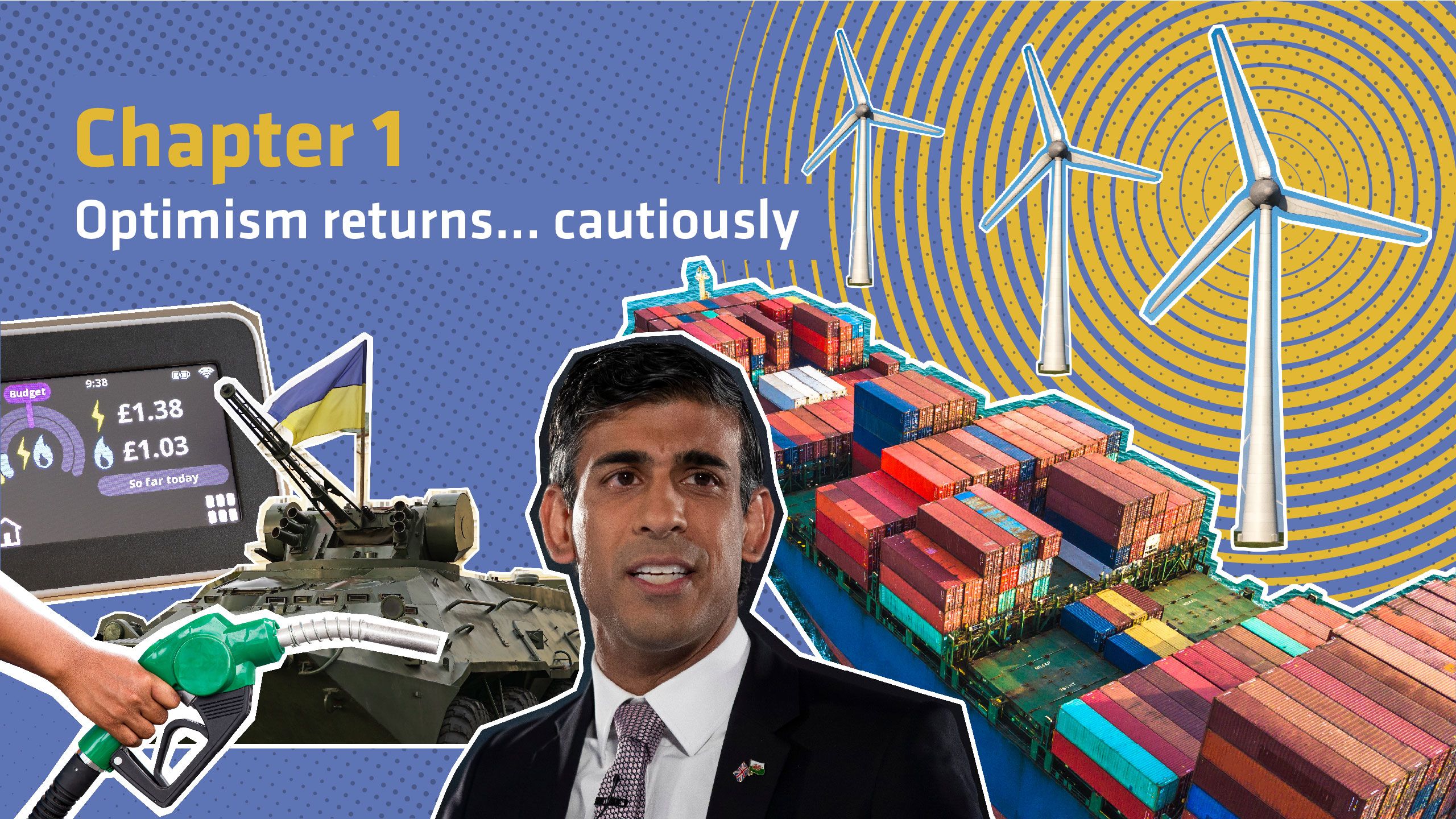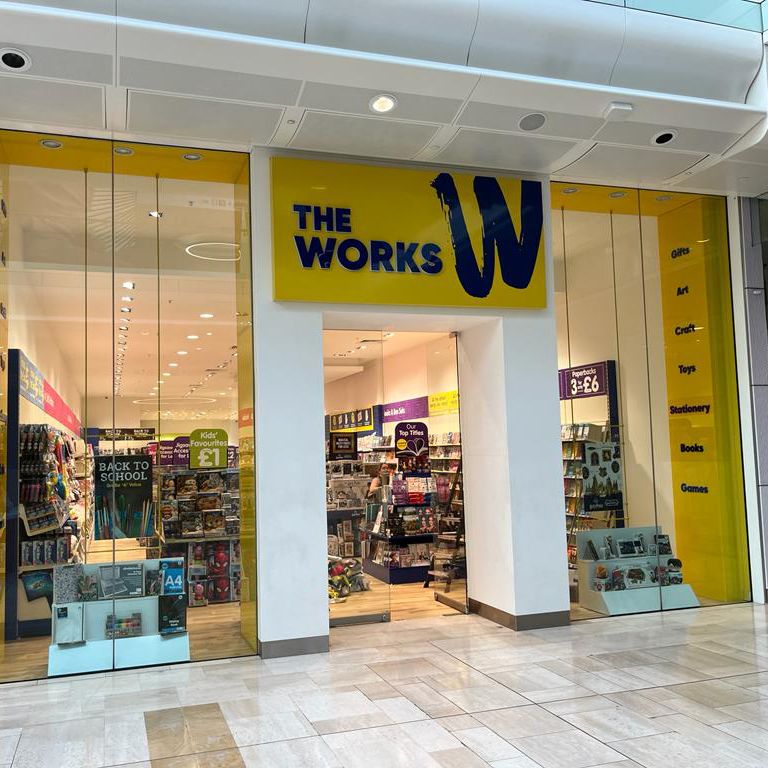
In 2023 the UK narrowly avoided recession and, while the economic picture won’t do a complete 180 in 2024, the forecasts for the 12 months ahead provide slightly more positive reading.
The International Monetary Fund (IMF) and the Organisation for Economic Co-operation & Development forecast a 1% growth in UK GDP in 2024, up from 0.3% for 2023. KPMG expects the 2024 figure to be marginally higher at 1.1%, while the Bank of England predicts a 0.75% rise and the British Chambers of Commerce 0.6%.
Similarly, the Centre for Retail Research forecasts the volume of UK retail sales will increase by 1.3% in 2024.
This more hopeful macroeconomic sentiment is amplified by the majority of the 41 UK retailers interviewed for this report: 54% expect year-on-year sales to be ‘slightly higher’ versus 2022 and a further 20% forecast them to be ‘much higher’.
Indeed, this 74% total for retailers expecting growth in 2023 is up on the 64% of retailers who expected growth this year when questioned in 2022. The businesses featured in this report are not exactly the same as last year’s cohort, but there was a 44% crossover so we can probably still conclude that the industry has fared better than expected amid obvious economic barriers.
Some 74% of those interviewed expect sales growth in 2024 too, which would indicate the sector is going into the new year more confident than it was going into 2023. Those that have continued to invest in their brands and store estate are particularly positive.
Positive mental attitude
Craig Ash, managing director for UK and Ireland at Swarovski, says internal initiatives for growth are providing an answer to many problems caused by a challenging economy.
“We have an internal strategy called Lux Ignite, which is about driving our brand elevation,” he explains.
“And that includes an extensive refurb and new store opening programme, alongside other customer experience enhancers from an all-new channel perspective. And that’s effectively offsetting the impact of the challenging macro climate.”
George McNeil, retail managing director of knitwear brand Johnstons of Elgin, says that with store sales heavily reliant on tourism, “the probability of our Asian guests returning will be a big influence on 2024”.
Secret Sales chief executive Chris Griffin adds that the designer discount retailer’s focus on affordable and good-value products will continue to drive sales in the cost-of-living crisis in 2024 – a sentiment echoed by The Works chief executive Gavin Peck about his own business.
“We have relaunched our Together loyalty scheme and, in the year ahead, will focus on improving the insight we obtain from this to support more effective CRM and loyalty activity,” Peck explains. The Together scheme allows members to receive five points for every £1 spent, with these points converted every three months into rewards vouchers to spend in store or online.
Maria Hollins, chief executive of Ann Summers, predicts new channels will contribute to sales growth. The lingerie brand will launch on additional marketplaces in 2023 to expand its reach. “It’s all about expanding into new markets and reaching new customers,” she explains.

Swarovski is banking on a brand elevation strategy for growth
Swarovski is banking on a brand elevation strategy for growth

The Works has recently relaunched its loyalty scheme
The Works has recently relaunched its loyalty scheme
Headwinds and tailwinds
In its winter 2023 UK Economic Outlook, the National Institute of Economic and Social Research predicted that inflation in 2024 will still be well above target (around 4-5%), only falling back to 2% in 2025. Inflation is certainly causing quandaries for those running UK retail and it is the one issue most likely to hold back profitability in their view.
Will Crumbie, chief executive of Fat Face, calls it “one of the biggest dilemmas we've got”.
“The customer has largely accepted inflation as long as we keep putting newness and innovation into key lines,” he explains. However, he worries that a second year of price rises driven by inflation would prove to be a challenge in converting customers.
Gill Smith, managing director of The Perfume Shop, says store refits and investments in warehouse automation to increase online capacity are being made to improve sales and profitability. However, she notes “there is the risk of changing mortgage rates on our customers’ spending power, which may offset the investments to increase sales”.
The Bank of England increased the UK base rate of interest for the 14th month in a row in August. At 5.25% it is the highest level it has been for 15 years, clearly impacting mortgage holders and stretched consumers’ discretionary spending potential.
Joanne Hayward, vice-president for convenience in Europe at BP, predicts that retail will remain “really tough and very competitive” in 2024.
She says: “Consumer preferences are to seek value for money and offers, and inflationary costs and cost pressures remain within the supply value chain. So, the real focus for us is going to have to be on managing pricing, promotions and costs against a backdrop of what is also a very, very tight labour market amid energy price volatility.”
Rasmus Brix, general manager for Pandora in the UK and Ireland, expects inflation to taper off during the second half of 2023.
He adds: “We've been quite aggressive during that last couple of years and still are in terms of investment into brand and people. So I think that will pay off once the market is in a better space.”
THG is another company that has invested in its infrastructure during this challenging period and is set to benefit from that work going forward.
“Last year, we completed a huge, multi-year global distribution and automation rollout, so we’re now much more efficient in servicing consumers, with dramatically improved delivery timings and service. The cost savings and service improvements from these investments are really substantial,” says chief executive Matt Moulding.
The as-yet-unconfirmed rise in the National Minimum Wage is also on the horizon in April 2024, resulting in many retailers citing the cost of labour as a key blocker on bottom-line growth in 2024. This is certainly a major issue for those retailers with the most stores, such as Primark, but it will also hit smaller businesses.
However, the retailers we interviewed saw the benefits of fairly rewarding staff as a worthwhile cost. Simon James, general manager for Europe, the Middle East and Africa at Molton Brown, says: “We signed up a year ago to the Real Living Wage across our factory and all our stores.
“That’s definitely having an impact. As part of our DE&I work, we’re rolling out a short-term incentive bonus scheme to absolutely all head office staff. Previously, all store and factory teams were already on bonuses and then it was pretty much middle management and above, so we’ve rolled that out this year to everybody.”

Huw Crwys-Williams, chief executive of cycling retail group WiggleCRC, cites market overstocks as a key drag on profitability for many businesses.
This is not specific to the bike market – it impacts fashion too, as exemplified by Asos’ decision to establish a key distribution partnership with Secret Sales in January to help it reduce excess inventory, followed by the launch of its discount sample Sale website in July to clear stock.
“Most brands got over-excited in 2021 and produced so much stock that I think that hangover will stick with us for another year to 18 months,” Crwys-Williams explains. “That’s not a UK phenomenon; that’s a global phenomenon.”
Primark chief executive Paul Marchant harbours a positive outlook for 2024, despite the additional costs on the horizon. Like many of the retail executives we spoke to, he cited cheaper freight fees as a reason to be cheerful and confident going into the new year.
“Raising labour rates is a challenge for us,” he says. “However, I think that we feel confident about sales as we go into next year. We’ve seen relief in freight rates, so shipping our goods from Asia is cheaper than it was this time last year, and energy prices are down, so that's a benefit.”
Looking at labour costs through a positive lens, F Hinds chair Andrew Hinds says: “Of the inflationary pressures, having to pay our staff quite a bit more is one of the costs that we actually quite like.”
For Chapter 2, click on Reshaping retail below

“Most brands got over-excited in 2021 and produced so much stock that I think that hangover will stick with us for another year to 18 months. That’s not a UK phenomenon; that’s a global phenomenon”
